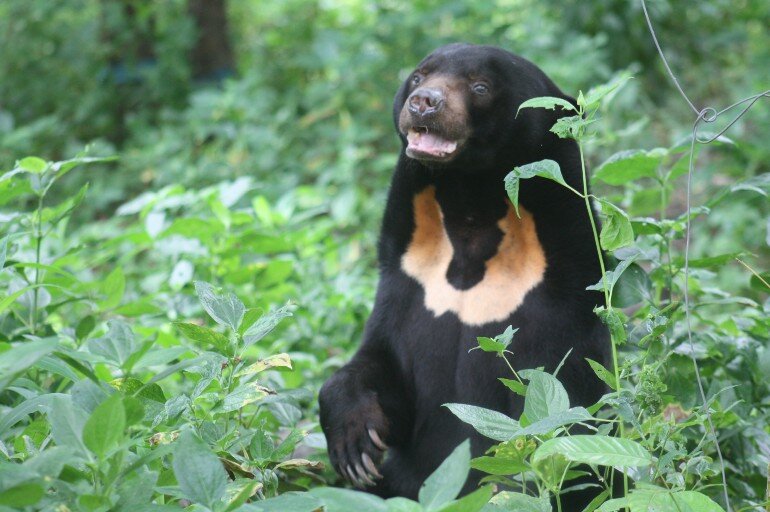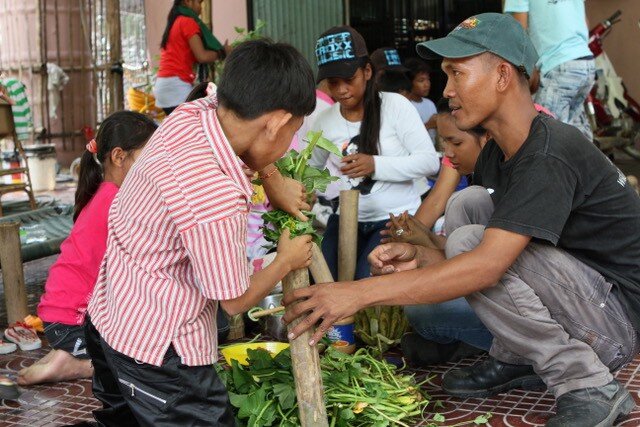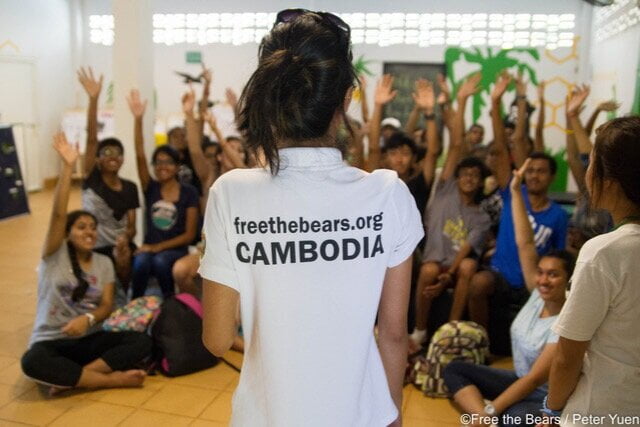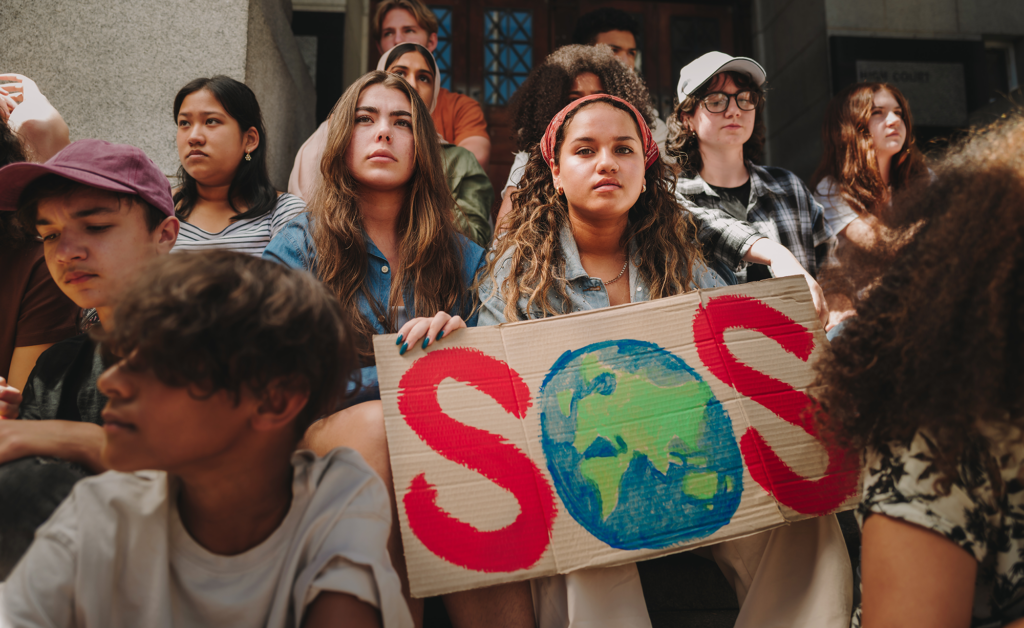The United Nations states that the COVID-19 pandemic is “an ‘unprecedented wake-up call’ for all inhabitants of Mother Earth” (UN News, 2020). We are acutely aware that the virus has affected nearly every part of life on this planet. Charitable organisations such as not for profits and non government organisations are no exception and many are now struggling to meet their running costs. The reasons for this are of course multifaceted, but reduced support and engagement play a significant role in these issues.
Partnership in school service programs
Most school service programs facilitate collaboration between students and charitable organisations. Partnerships are formed with organisations that are local to the school, or global organisations, located in different parts of the world. These mutually beneficial relationships seek to provide a reciprocal exchange, whereby both students and organisations learn, grow and support each other.

Free the Bears — A case study
Free the Bears is a not for profit organisation that was founded in 1995 by Mary Hutton, with a mission to “protect, preserve and enrich the lives of bears throughout the world” (Free The Bears, 2020). The organisation operates bear sanctuaries in Laos, Cambodia and Vietnam and has helped rescue over 950 bears to date. As a whole, Free the Bears works across Asia in communities, schools and organisations to raise awareness regarding wildlife trade. They also work alongside institutions such as universities who conduct research in this area. In each country in which they have a presence, they work on ways to combat wildlife traders, collaborating with government, law enforcement agencies and other charities.
Pesei Khuoy is the Awareness Communication and Education Team Manager at the Free the Bears’ Cambodia Bear Sanctuary which is located just outside the capital of Phnom Penh, providing a home and care for rescued sun and moon bears. The Bear Discovery Centre at the sanctuary offers a well equipped education centre for schools and people taking ‘behind the scenes’ tours. Having visited the sanctuary twice, I was impressed with the forest-like enclosures and ‘chill out spaces’ where the bears lounge in hammocks to rest. This particular branch of the organisation works alongside local schools in the surrounding area, providing valuable education and awareness about wildlife and conservation.

Free the Bears in Cambodia also works with a number of international schools from around the globe. Students from these schools raise awareness about the organisation and related issues in their own communities, and fundraise in support. Some of the schools have the opportunity to visit, undertaking tasks such as cleaning out garden beds, bear enclosures and preparing food. Where possible, Free the Bears ensures that this service action is in addition to the work done by local employees and helps achieve objectives that would otherwise take extended periods of time or funding to achieve. Visits by international schools provide much needed revenue that maintains the operation and supports growth.
At the moment, as a result of COVID-19, the organisation is struggling to meet the $30,000 USD per month cost to keep the Cambodia Bear Sanctuary open and functioning. In addition to international school visits, it relies on varied revenue streams including the Bear Discovery Centre, Volunteer Programs, tours and merchandise sales. With international schools cancelling trips and having to adapt their service programs this has greatly reduced the financial support necessary to keep the operation afloat.
Free the Bears is working on other fundraising activities to offset the losses they are currently experiencing. A recent global fundraiser called ‘Night in a Cage’ invited people to gather sponsorship to spend a night in a temporary ‘cage’ they had constructed out of materials such as cardboard boxes, blankets or a tent. One of the objectives of the experience was to give people the opportunity to empathise with bears which are caged for their entire lives and mutilated to extract bile for traditional medicines.
How can students help?

Obviously, the difficulties Free the Bears are currently facing are not an isolated situation, but one that is mirrored by charitable organisations around the world. Pesei shared some ways that students can continue to support Free the Bears during their service programs or over their summer break.
Raising awareness about the organisation’s work and the plight of the bears would help to spread the word and could lead to additional funding support. Students could write and share articles or host webinars. Fundraising efforts within student’s communities are always beneficial. Students can easily create their own online fundraiser — for example, donate their birthday on social media or hold their own ‘Night in a Cage’ challenge. If students are already collaborating with Free the Bears they could monitor the progress and connect with the organisation to stay up to date with how things are progressing. This would enable both students and Free the Bears to maintain their relationship, and ensure that the students continue to feel part of the organisation despite a missed trip or lack of in-school fundraising action. Even if students are not already working alongside the organisation, Pesei would love to hear from them! Pesei also encourages students to talk to their families and friends about becoming ‘Bear Carers’. For less than the price of a cup of coffee each week, people can help support the ongoing care of hundreds of rescued bears.
Any support would be greatly welcomed by Free the Bears, in order to help them bridge this crisis and continue to care for the bears on a long term basis. For more information please contact Pesei on pesei@freethebears.org or check out their website at https://freethebears.org/.
During such challenging times, we naturally focus on how to support those around us. As we find our feet, we must remember to keep those farther afield in our thoughts, and consider ways in which we can support those who will need our help over the upcoming months.
By Alice Whitehead
The article is based on the content of Be The Change — an online program in service for 15 to 18 year old.
For more details please email hello@orendalearning.com or visit our website www.bethechange-service.com.
References
Free The Bears. (2020). Objectives and Achievements. https://freethebears.org/pages/objectives-achievements
United Nations. (2020, April 20). COVID-19 pandemic, an ‘unprecedented wake-up call’ for all inhabitants of Mother Earth. UN News. https://news.un.org/en/story/2020/04/1062322




